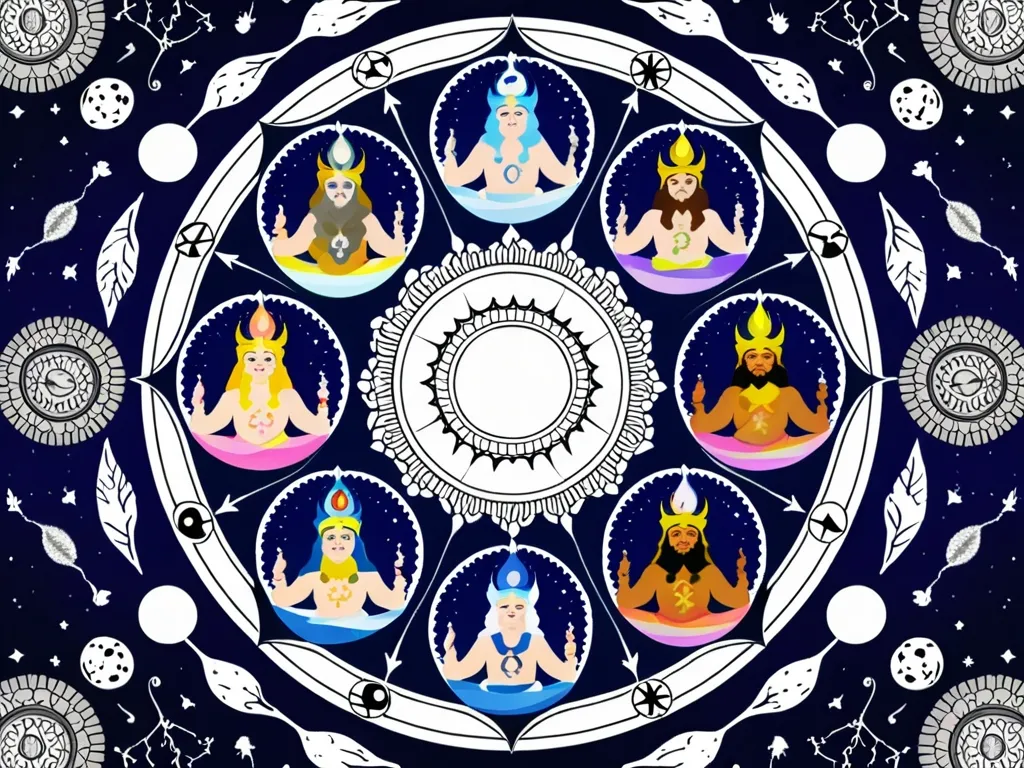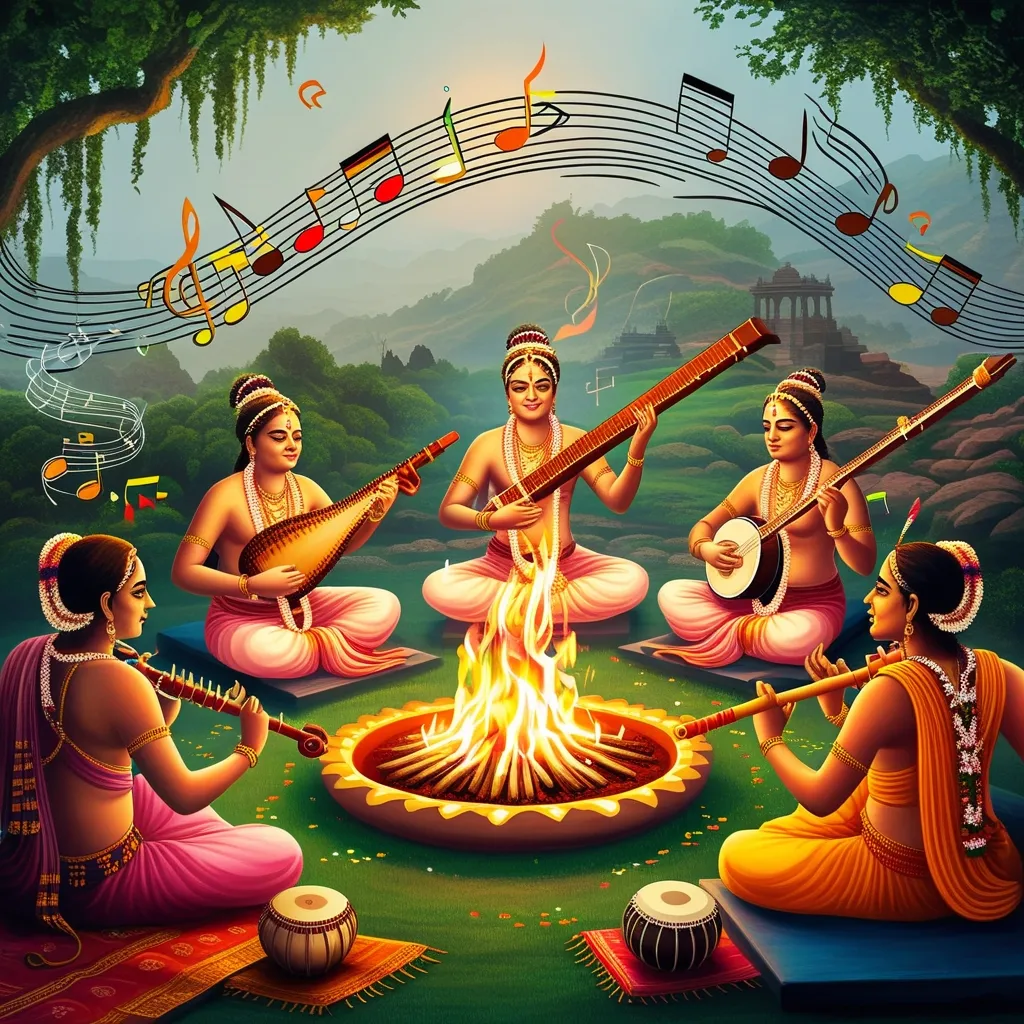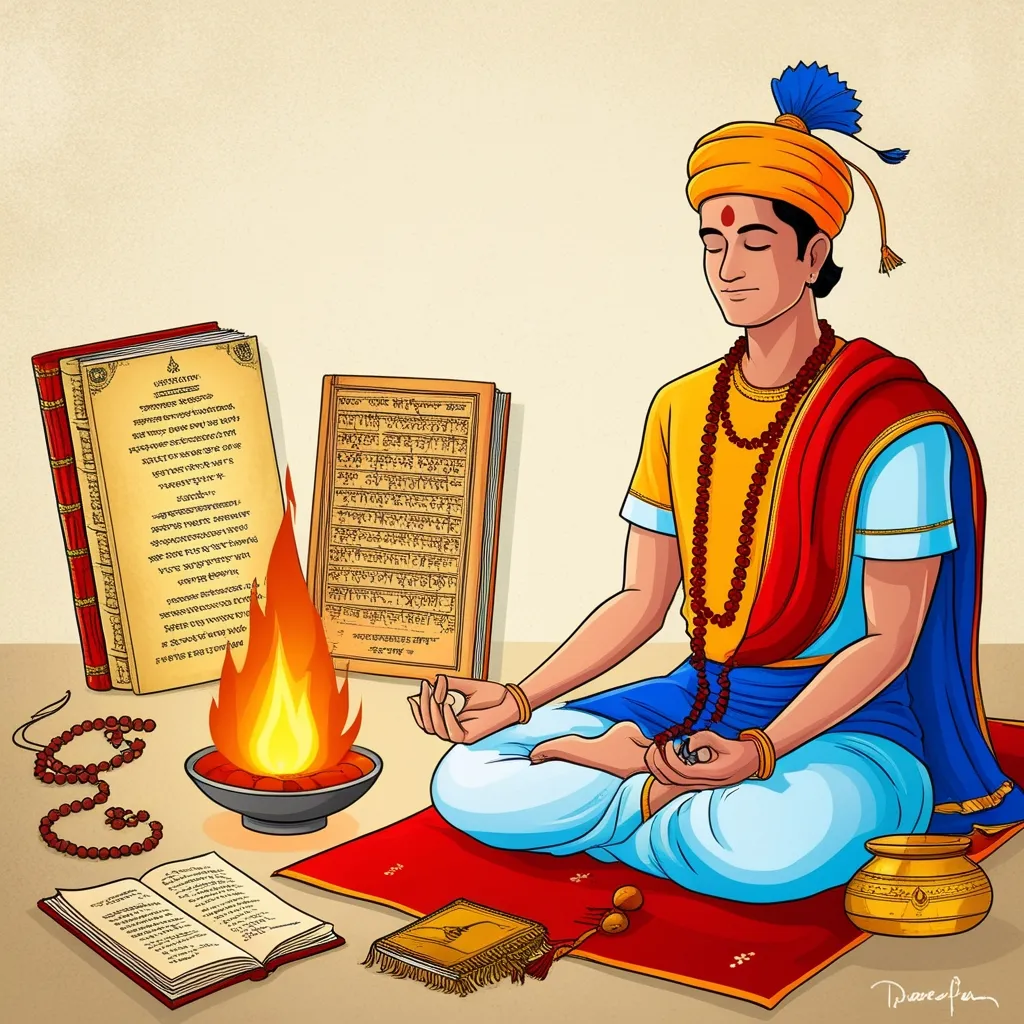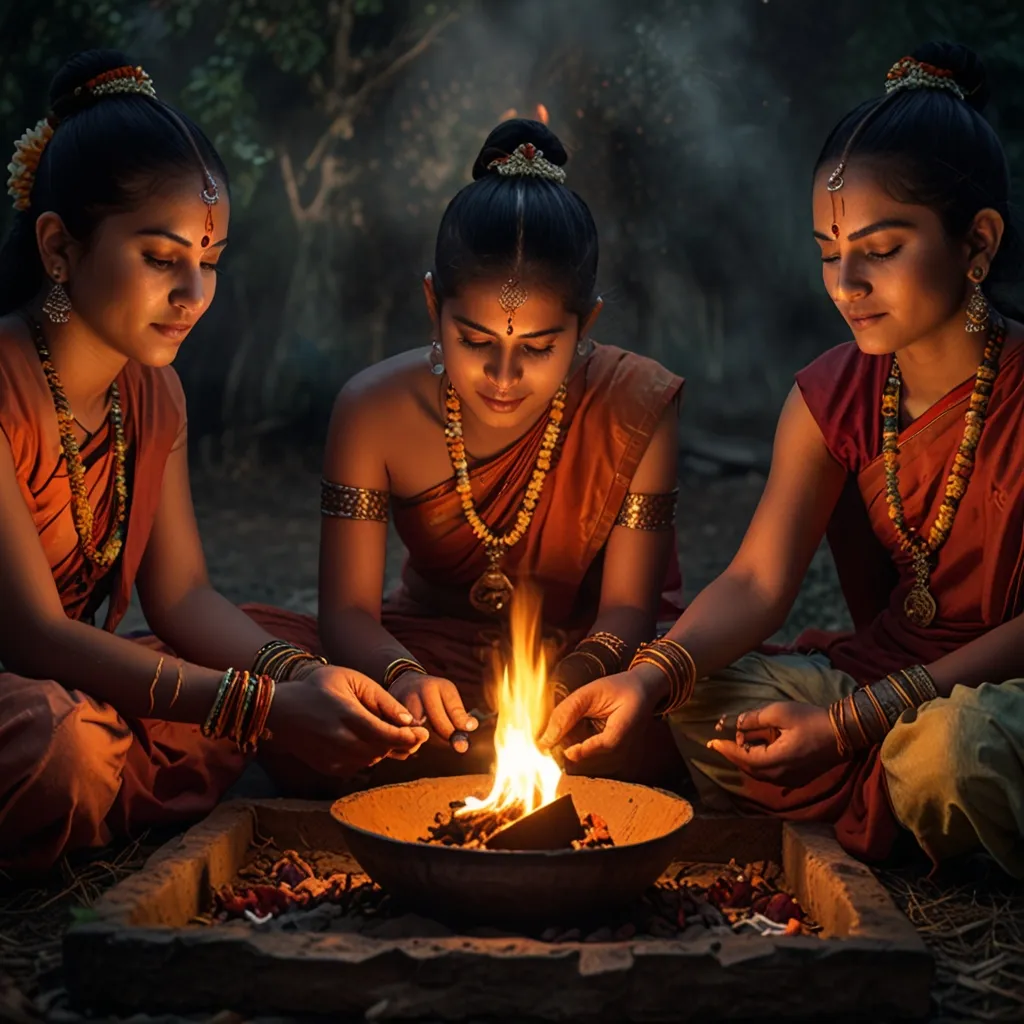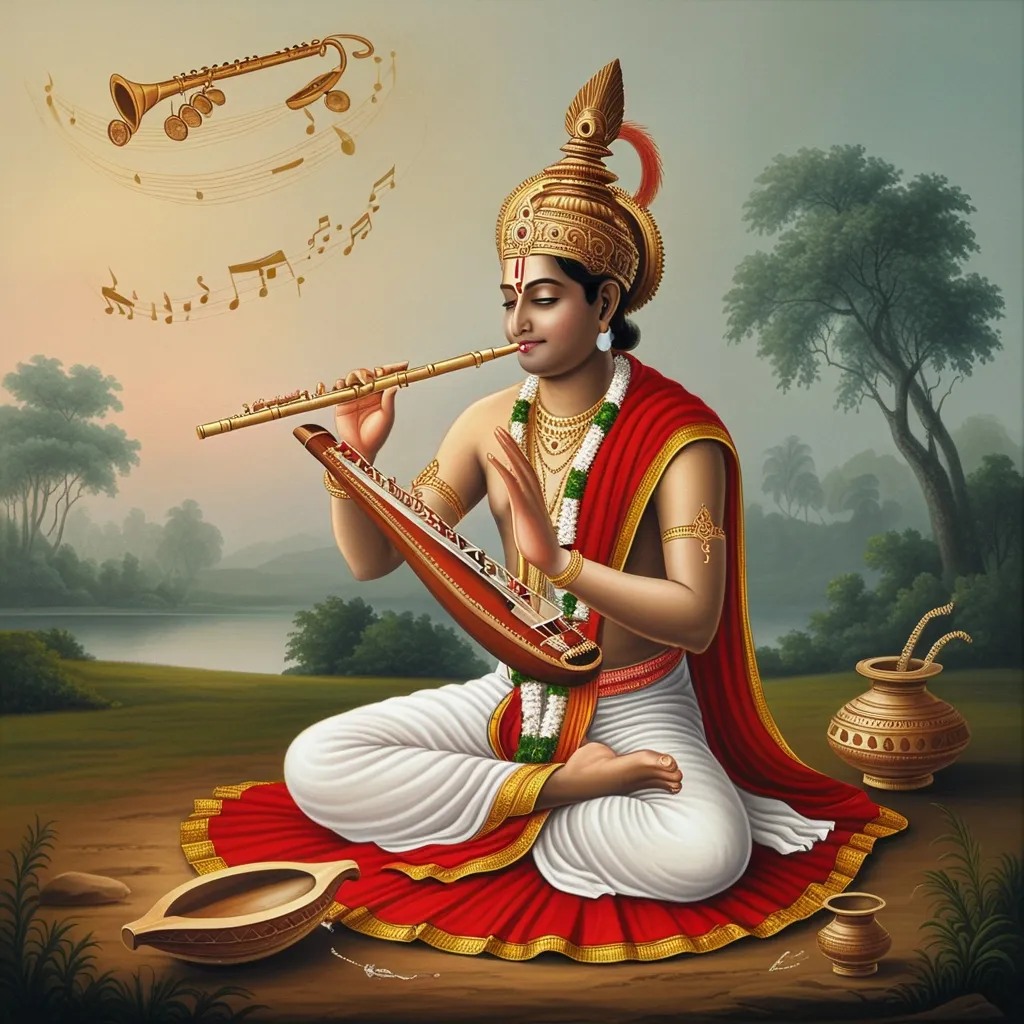In the intricate web of Hindu philosophy, the concept of Prarabdha Karma stands out as a fascinating and complex aspect of the broader karma theory. This idea delves into the notion that a portion of our past actions is destined to manifest in our current lifetime, influencing our destiny in profound ways.
To understand Prarabdha Karma, it’s essential to grasp the three primary types of karma: Prarabdha, Sanchita, and Agami. Prarabdha Karma is the part of our accumulated karma (Sanchita Karma) that has been selected to be experienced in this life. It is the karma that has begun to bear fruit and is currently manifesting as our present circumstances, including our physical body, health, and life events.
Imagine your life as a journey where certain events and experiences are already set in motion, much like an arrow that has left the bow and cannot return. This is Prarabdha Karma – the consequences of past actions that are now unfolding. For instance, your genetic makeup, family background, and even some of the challenges you face are all part of your Prarabdha Karma. These aspects are often beyond your control and must be experienced and exhausted before they can be resolved.
One of the most intriguing aspects of Prarabdha Karma is its relationship with realized souls or Jivanmuktas. Even those who have achieved spiritual liberation are not exempt from experiencing their Prarabdha Karma. However, their realized state allows them to remain detached from the pain and sorrow associated with these experiences. The story of Bharata from the Bhagavata Purana illustrates this point. Despite his deep spiritual practices and realization, Bharata’s Prarabdha Karma led him to be reborn as a deer due to his attachment to a deer cub. This example highlights that even the most spiritually advanced individuals must undergo their Prarabdha Karma.
The concept of Prarabdha Karma also raises questions about free will and predestination. While Prarabdha Karma suggests a certain level of predestination, it does not negate the role of free will entirely. Our current actions, or Agami Karma, can influence our future destiny and even mitigate some of the effects of our Prarabdha Karma. This balance between predestination and free will is a central theme in Hindu philosophy, encouraging individuals to make conscious choices that can shape their future while accepting the inevitable aspects of their Prarabdha Karma.
In practical terms, understanding Prarabdha Karma can help us approach life’s challenges with a different perspective. When faced with difficulties that seem insurmountable, recognizing them as part of our Prarabdha Karma can foster acceptance and resilience. This acceptance does not mean resignation but rather an understanding that these experiences are part of our karmic journey. For example, if you are dealing with a chronic illness, viewing it as part of your Prarabdha Karma can help you accept the situation and focus on managing it with grace and wisdom.
Moreover, the idea of Prarabdha Karma emphasizes the importance of spiritual practices and self-reflection. While we cannot change our Prarabdha Karma, we can influence how we experience it through our attitude and actions. Practices such as meditation, prayer (japa), charity (dana), and fasting (upavasa) can be used as prayashchitta, or atonement, to mitigate the effects of our karma. These practices not only help in managing the current challenges but also contribute to our spiritual growth and future well-being.
The distinction between different types of Prarabdha Karma is also noteworthy. According to some texts, Prarabdha Karma can be categorized into Ichha (personally desired), Anichha (without desire), and Parechha (due to others’ desire). For a self-realized person, the Ichha-Prarabdha may not apply, but the other two types remain, indicating that even the most advanced spiritual beings have certain karmic obligations to fulfill.
In the broader context of Hindu philosophy, Prarabdha Karma serves as a reminder of the interconnectedness of our lives across multiple births. It underscores the idea that our current life is not isolated but is part of a larger karmic cycle. This understanding can inspire a sense of responsibility and mindfulness in our actions, knowing that they will have consequences not just in this life but in future lives as well.
The concept of Prarabdha Karma also offers a unique perspective on life’s inequalities. Why do some people face immense hardships while others seem to have easier lives? According to Hindu philosophy, these inequalities are often the result of Prarabdha Karma, reflecting the accumulated effects of past actions. This perspective encourages empathy and understanding, rather than envy or resentment, towards others’ circumstances.
In conclusion, Prarabdha Karma is a profound concept that adds depth to our understanding of destiny and free will. It reminds us that while certain aspects of our lives are predetermined, we still have the power to shape our future through our choices and actions. By accepting what we cannot change and working on what we can, we can navigate life’s ups and downs with greater wisdom and grace. This ancient wisdom from Hindu philosophy continues to offer valuable insights for spiritual seekers and anyone looking to understand the complex interplay between past actions and present circumstances.

